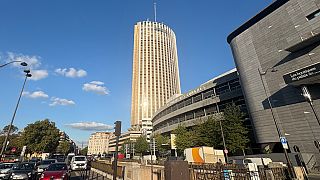South Africa
In the aftermath of recent attacks in the Red Sea, vessels are opting to bypass the Suez Canal and navigate around South Africa's Cape of Good Hope.
This shift has disrupted a crucial global shipping route, compelling ships to add another 15 days to their journeys, accompanied by increased costs.
Despite the Cape of Good Hope route requiring an extra 4,000 miles around Africa, it is considered a safer alternative by many companies.
The Port of Cape Town has become essential, particularly with the closure of the Algoa Bay bunkering zone on the Indian Ocean. The increased bunkering activity (refueling) in Cape Town is attributed to the closure of Algoa Bay, as confirmed by Alex Miya, harbor master of the Port of Cape Town.
The Western Cape Province is experiencing economic benefits from this redirection of shipping routes.
Alan Winde, the premier of Western Cape, highlights the direct advantages of ships passing through the region, emphasizing the need for efficient operations and maximizing the economic opportunities presented by this unexpected windfall.
As the crisis in the Red Sea persists, the re-routing of ships through the Cape of Good Hope continues, providing South Africa and the continent with a unique economic opportunity.













01:01
Relief and celebrations as Israel and Hamas agree to first phase of peace plan
01:00
Pix of the Day: October 09, 2025
01:00
Palestinians celebrate in Gaza as ceasefire agreement takes effect
01:00
Israeli strikes continue in Gaza despite announcement of ceasefire deal
01:00
Joy and relief in Tel Aviv as deal promises release of hostages in Gaza
01:52
Israel and Hamas agree to first phase of peace deal